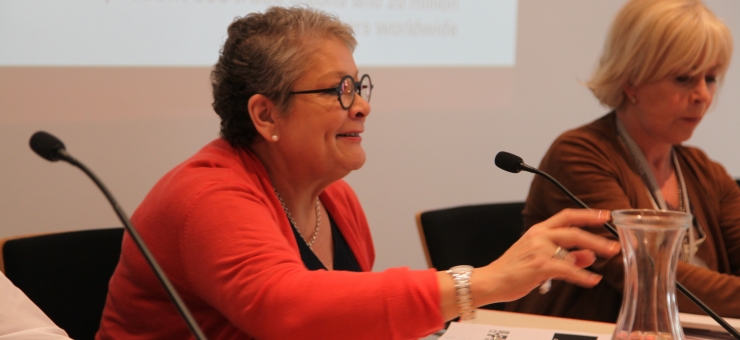UNI Global Union President: Breaking Through on the road to Liverpool UNI World Congress 2018

UNI Global Union President Ann Selin outlined the challenges facing the union movement, in her opening remarks at the 20th Meeting of the UNI World Executive. The UNI President said that although the global union movement was in good shape the challenges on the road to the UNI World Congress in Liverpool 2018 and beyond remained grave.
Selin said, “The G20 itself has given its encouragement to global framework agreements! They also said they did not ‘want to leave people behind’. These words do not match the union rights’ realities on the ground, where we continue to see moves in all continents to close down our space to organise and negotiate.”
On the positive side, Selin said UNI’s influence has never been stronger, “We continue to make our presence felt in the global policy debate on supply chains where we have renegotiated the continuation of the Bangladesh Accord in the face of stiff opposition from the Bangladeshi government and employers. We are likewise making our presence felt strongly on the Future World of World and are now recognised as thought-leaders. How pleased we are that our call in Cape Town that workers need a pay rise has been taken up by the ETUC and ITUC.”
Selin noted that the struggle for change was on-going despite some successes, “A noteworthy success was the struggle of the Korean people for political change through the candlelight vigil movement. There is now a new government and yet President Han of the KCTU is still in prison. We continue to press for his release. We also echo the Korean people’s call for peace and dialogue amidst nuclear tensions in the Korean Peninsula. We welcome the adoption of the UN resolution to make nuclear weapons illegal. We are delighted that ICAN has won the Nobel Peace Prize. UNI is a member of ICAN. We have supported ICAN. Our commitment to the people of Nagasaki is being fulfilled.”
On the repression in Brazil she said, “We see the labour market results of the political coup in Brazil, as this government has introduced draconian labour law reforms which are targeting union rights to negotiate collective agreements, and more. We see that Macron’s labour reform will also weaken existing collective bargaining structures in France.
All this against a background of 152 million children at work, 40 million people in conditions of modern slavery and one in two workers living in a state of job vulnerability. When we look at our labour markets, their insecurity and precarity, the shrinking share of wages in wealth produced, inequality, the ravages of climate change with those dreadful extreme weather conditions, it is clear to me that we need a new Social Contract.”
The UNI World Executive Board is being held over two days, exploring organising and campaigns strategies in the run up to UNI World Congress in Liverpool in 2018.

